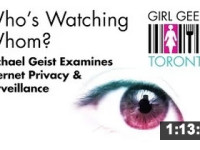As criticism of Bill C-13 mounts, the government’s sales strategy for its latest lawful access bill is starting to unravel. Many will recall the immediate, visceral opposition to Bill C-30, the last lawful access bill that started with then-Public Safety Minister Vic Toews declaring the day before introduction that Canadians could either stand with the government or with the child pornographers. The bill never recovered as Toews’ divisive remarks placed the spotlight on the warrantless disclosure provisions and the lack of privacy balance. Within ten days it was on placed on hiatus and formally killed a year later.
While the government has removed some of the most contentious elements from Bill C-30, many privacy concerns remain (immunity for voluntary disclosure, metadata). Indeed, it appears that its primary takeaway from the last legislative failure – an incredibly rare moment in the life of a majority government – was that it was a botched sales job. So despite a promise not to bring back lawful access legislation, it did so months later, this time armed with a new marketing strategy. Bill C-13 was framed as a cyber-bullying bill and its primary sales people were presumably supposed to be the victims of cyber-bullying and their parents.
The turning point on Bill C-13 came ten days ago when they appeared before the Justice Committee studying the bill. Carol Todd, the mother of Amanda, led off and courageously insisted that the government stop using her child’s name to undermine privacy:
Read more ›








